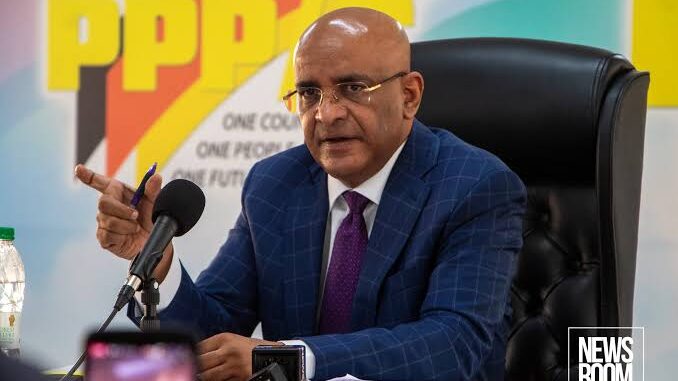
Guyana Holds Oil Operators Accountable to Prevent Oil Spill Disasters
As Guyana rapidly transforms into a significant oil-producing nation, the government is taking strong action to avoid the environmental disasters that have plagued other oil-rich countries. With the discovery of vast offshore oil reserves, Guyana is keen to ensure that the mistakes seen elsewhere—such as massive oil spills, poor regulatory oversight, and insufficient cleanup measures—are not repeated. The government’s approach is centered around holding oil and gas companies accountable, ensuring they operate responsibly and are prepared to deal with any environmental emergency.
Strict Liability and Financial Assurances Enforced
One of the key measures Guyana has introduced is the enforcement of strict liability for oil companies operating within its borders. This means that companies will be held legally and financially responsible for any damage resulting from oil spills or other environmental harm, regardless of fault. In essence, even if a spill is accidental or caused by third parties, the operators are required to cover all associated costs.
This liability is not just theoretical. The government has required that ExxonMobil and its partners in the offshore Stabroek Block, the site of the country’s major oil discoveries, provide parent company guarantees and environmental liability insurance. These financial safeguards ensure that the country won’t be left scrambling to cover cleanup costs or damages if a major spill occurs.
Vice President Bharrat Jagdeo has emphasized that this is not about discouraging investment but about responsible resource management. “We welcome the investment, but we must also protect our environment and our people,” Jagdeo stated at a recent press conference.
In a region where environmental regulation has often lagged behind industry expansion, Guyana’s firm stance sends a strong message. It assures citizens and environmental advocates that the government will not allow oil development to come at the expense of the nation’s natural wealth and marine biodiversity.
Emergency Response and Oversight Boosted
Beyond financial liability, the government has also taken steps to improve oversight and emergency preparedness. Operators must now submit comprehensive oil spill response plans before being granted permits. These plans are scrutinized by the Environmental Protection Agency (EPA) and must be updated regularly. Moreover, the country has received technical support and training from international partners to build its own response capacity in the event of a spill.
In 2023, a controversial court ruling required the EPA to ensure that ExxonMobil had unlimited financial coverage for oil spills. Although debated by legal experts, the decision underscored growing public concern about the risks associated with deep water drilling. Rather than resist, the government has since moved to strengthen the legal and institutional framework governing the industry.
To further enhance transparency and enforcement, Guyana is also implementing monitoring technology and third-party audits to track compliance. Remote sensing tools and satellite imagery are now being used to monitor oil production activities, detect leaks, and assess environmental impact in real time.
Local communities and environmental NGOs have been calling for greater participation in the oversight process, and the government has responded by including civil society input in environmental assessments. Public consultations have been held in coastal regions most vulnerable to oil pollution, helping to build trust and ensure that diverse voices are considered in planning and risk mitigation efforts.
Through a combination of legal accountability, financial safeguards, enhanced monitoring, and international cooperation, Guyana is aiming to set a regional example of how oil can be developed responsibly. As production continues to grow, the country’s ability to enforce these measures will be closely watched—not only by investors, but also by nations facing similar development-versus-environment dilemmas.
If you’d like this adapted into a different format, like a news release or summary, let me know!
Leave a Reply